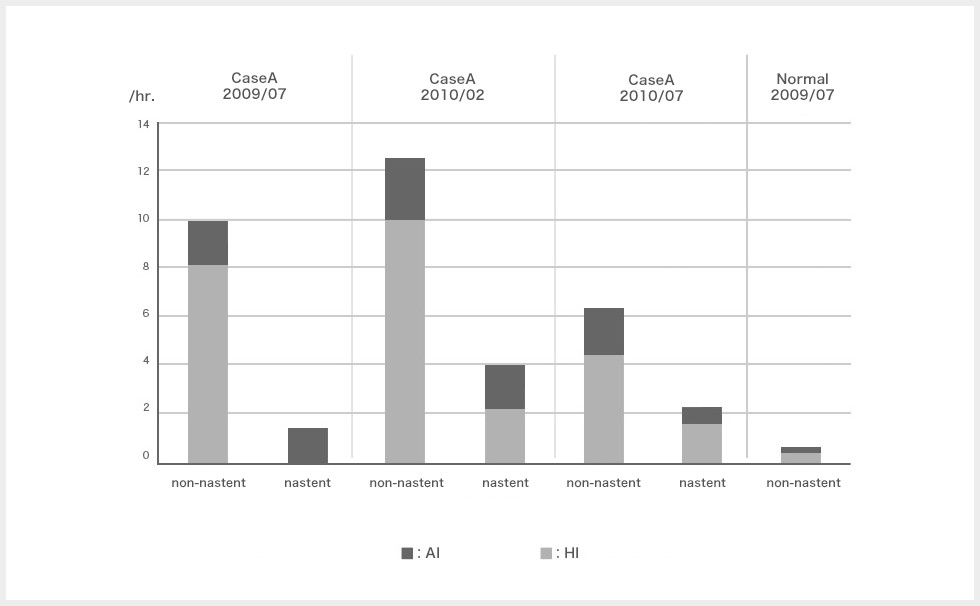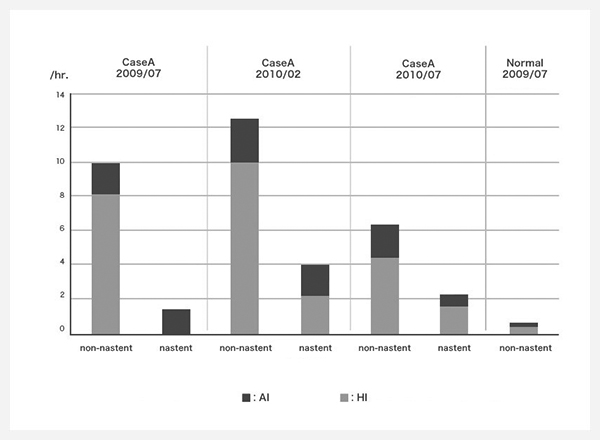Clinical Effect Data related to Nastent
Case of using Nastentfor a patient with SAS
As shown in the graphs, the blood oxygen saturation (top) of OSA patients decreases during sleep, repeatedly falling below 90%. In contrast, the blood oxygen saturation (bottom) of healthy individuals remains constant during sleep. When patients in the top graph use Nastent the graph flattens, indicating that blood oxygenation has stabilized (middle graph).
Verification of the effect of Nastent by measuring the blood oxygen saturation with a pulse oximeter
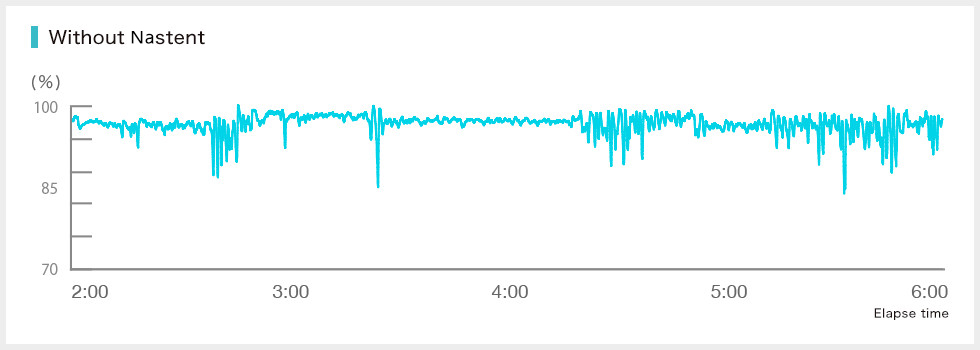
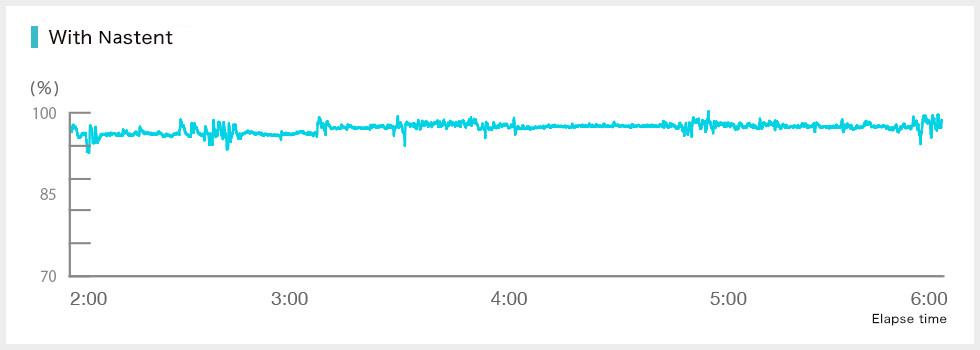
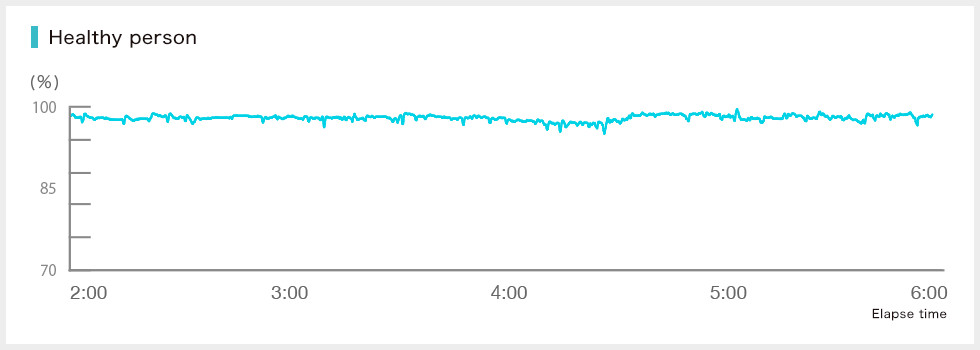
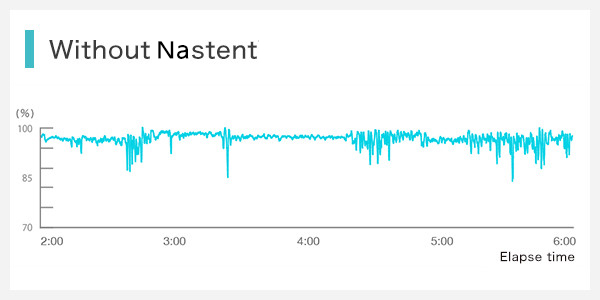
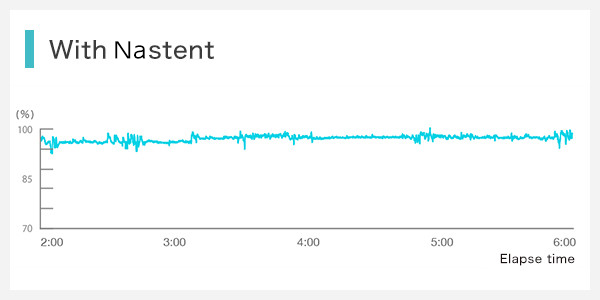
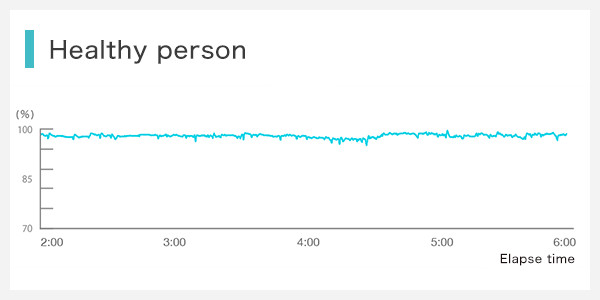
Number of apneas while asleep
The effect of Nastent Classic for the number of apneas and hypopneas index per hour has been verified for one year.
Example of using Nastent Classic over a long period → Example of using Nastent for a year.
This graph shows changes of AHI (Apnea Hypopnea Index, the number of apneas and hypopneas per hour) of a patient who used Nastent classic for approximately one year. The AHI was measured with a simple measurement instrument. Measurement was conducted with and without using Nastent classic. In each measurement, using Nastent classic reduced AHI. It shows that using Nastent classic for a long period of time causes AHI to decline and improves breathing while asleep.
Supervisor: Makoto Sato, Sleep Medicine Professor, University of Tsukuba
